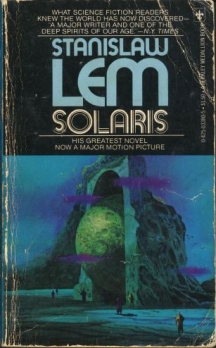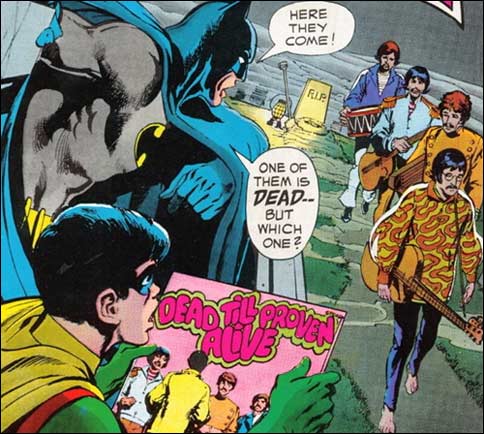 I adore Stanisław Lem. And for ages I’ve wanted to read his masterpiece Solaris (1961), but haven’t, even though I own a couple of beat-up mass paperback copies, because the only English translation available has been the Joanna Kilmartin and Steve Cox 1970 adaptation, which they “translated from the French”—from Jean-Michel Jasiensko’s 1966 translation—and which Lem himself purportedly disliked, and which my Polish friends have repeatedly told me is terrible, and which I’ve nonetheless tried to read on a number of occasions, but was never able to get more than a few pages into before I’d give up and instead rewatch Andrei Tarkovsky’s 1972 cinematic adaptation (which Lem also openly disliked; the man wasn’t afraid to voice his opinions). (And even with that film, it wasn’t until I saw Criterion’s 2002 DVD release that I realized how magnificent it was; the 1997 VHS release was washed out and split across two tapes, and I think even pan-and-scanned, rendering it pretty underwhelming.)
I adore Stanisław Lem. And for ages I’ve wanted to read his masterpiece Solaris (1961), but haven’t, even though I own a couple of beat-up mass paperback copies, because the only English translation available has been the Joanna Kilmartin and Steve Cox 1970 adaptation, which they “translated from the French”—from Jean-Michel Jasiensko’s 1966 translation—and which Lem himself purportedly disliked, and which my Polish friends have repeatedly told me is terrible, and which I’ve nonetheless tried to read on a number of occasions, but was never able to get more than a few pages into before I’d give up and instead rewatch Andrei Tarkovsky’s 1972 cinematic adaptation (which Lem also openly disliked; the man wasn’t afraid to voice his opinions). (And even with that film, it wasn’t until I saw Criterion’s 2002 DVD release that I realized how magnificent it was; the 1997 VHS release was washed out and split across two tapes, and I think even pan-and-scanned, rendering it pretty underwhelming.)
Today I noticed that there’s a new and direct translation of Solaris available, albeit only electronically (and as an audio book). It’s by Bill Johnston, “a professor of Comparative Literature at Indiana University.” (The audio book version is read by Alessandro Juliani, who I see played Lt. Felix Gaeta on Battlestar Galactica.) … So has anyone out there read it, or listened to it? (This new Solaris, not BG.) From what I can see online, it certainly looks more promising. Here’s Kilmartin/Cox:
At 19.00 hours, ship’s time, I made my way to the launching bay. The men around the shaft stood aside to let me pass, and I climbed down into the capsule. Inside the narrow cockpit, there was scarcely room to move. I attached the hose to the valve on my space suit and inflated it rapidly. From then on, I was incapable of making the smallest movement. There I stood, or rather hung suspended, enveloped in my pneumatic suit and yoke to the metal hull.
And here, by way of contrast, is the start of Johnston’s new edition:
At nineteen hundred hours ship’s time I climbed down the metal ladder past the bays on either side into the capsule. Inside, there was just enough room to raise my elbows. After I attached the end of the cables into the port jutting from the side of the capsule, my space suit filled with air and from that point on I couldn’t make the slightest movement. I stood, or rather hung suspended, in a bed of air, all of one piece with my metal shell.
Finally, while on the subject of Solaris, has anyone out there seen that other movie version that got made? You know—the one by Lidiya Ishimbayeva and Boris Nirenburg?
Thinking about all these different editions of Solaris got me wondering what the original Polish movie poster for Solaris looked like. If you’ve become curious as well, then wonder no longer:
READ MORE >






